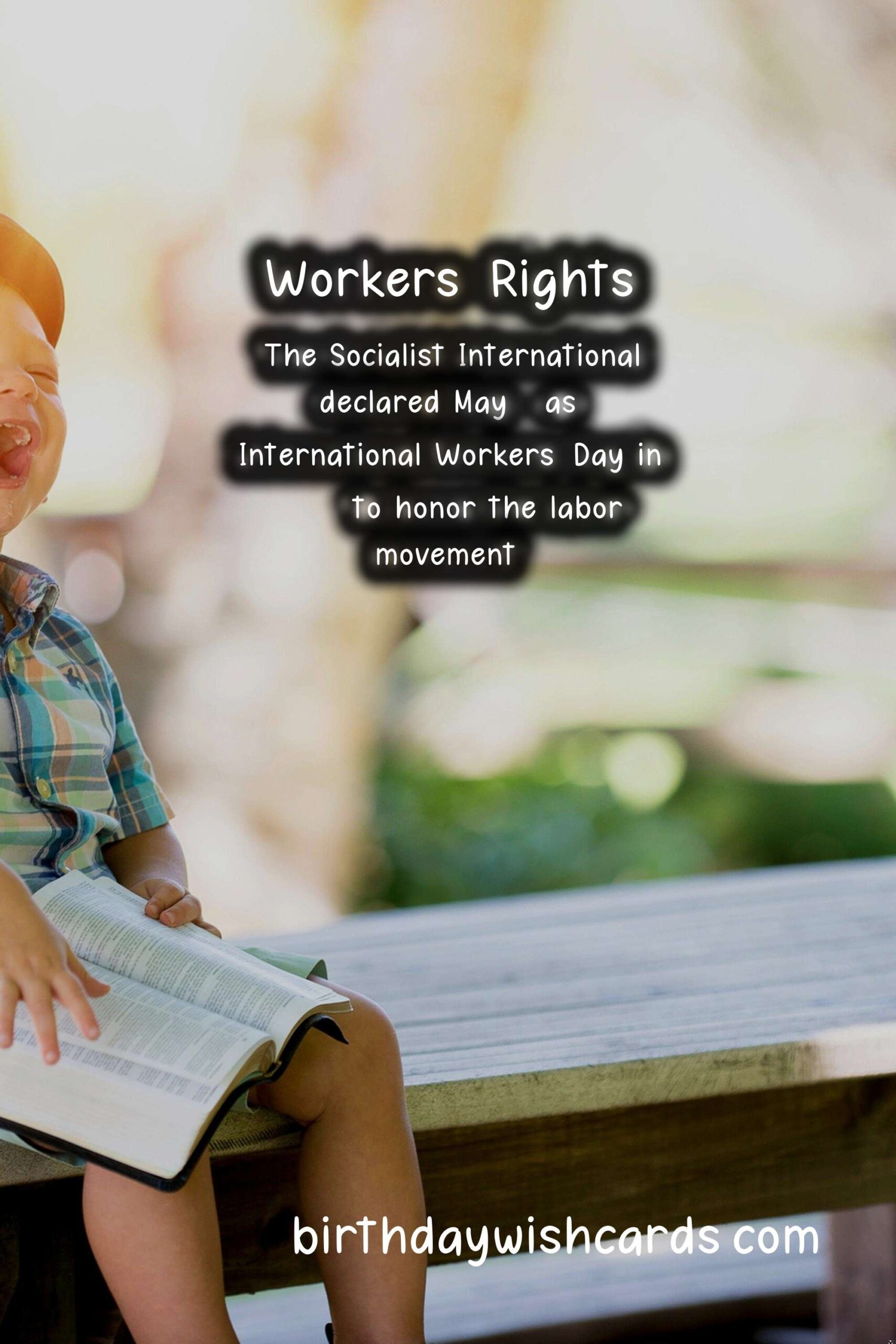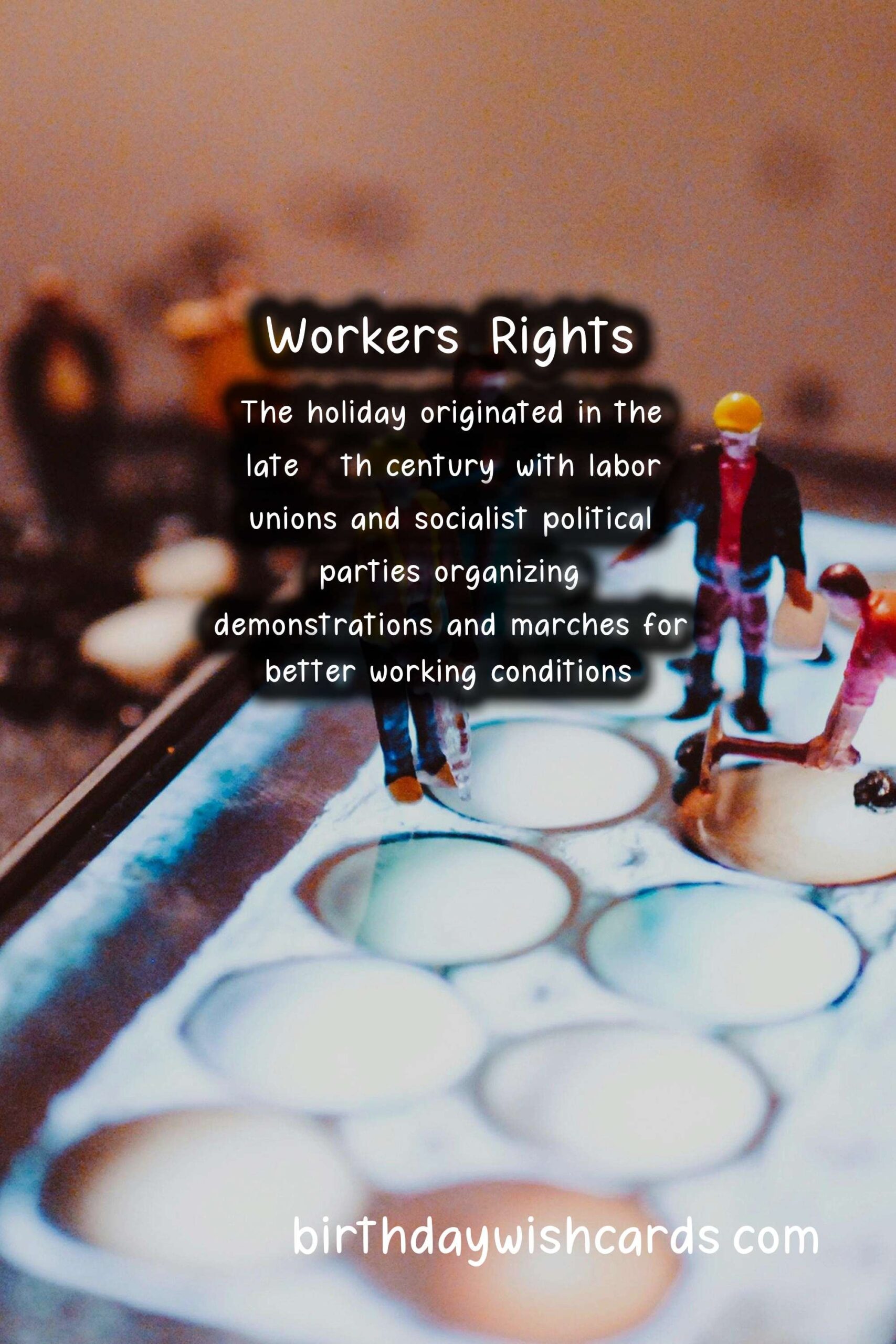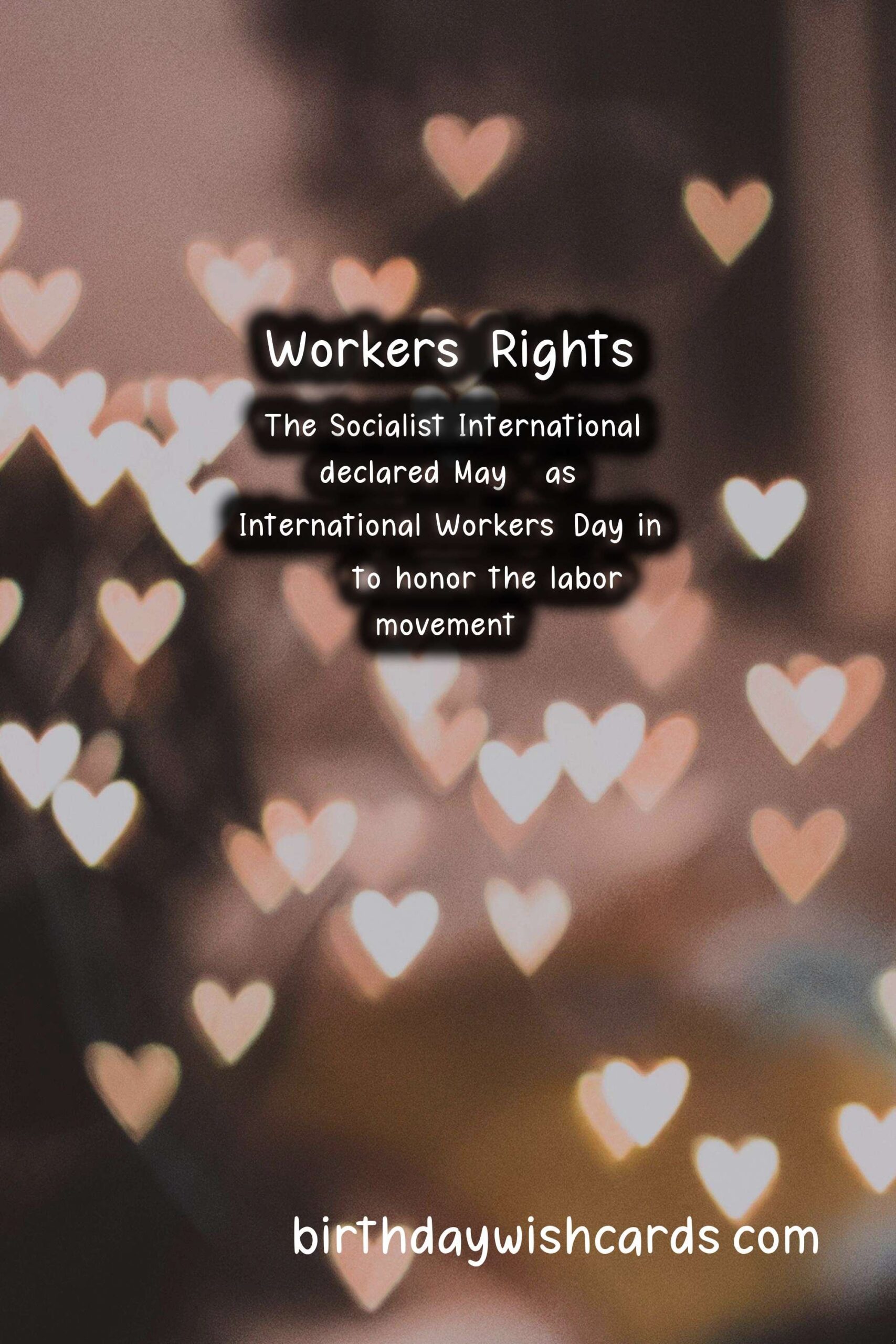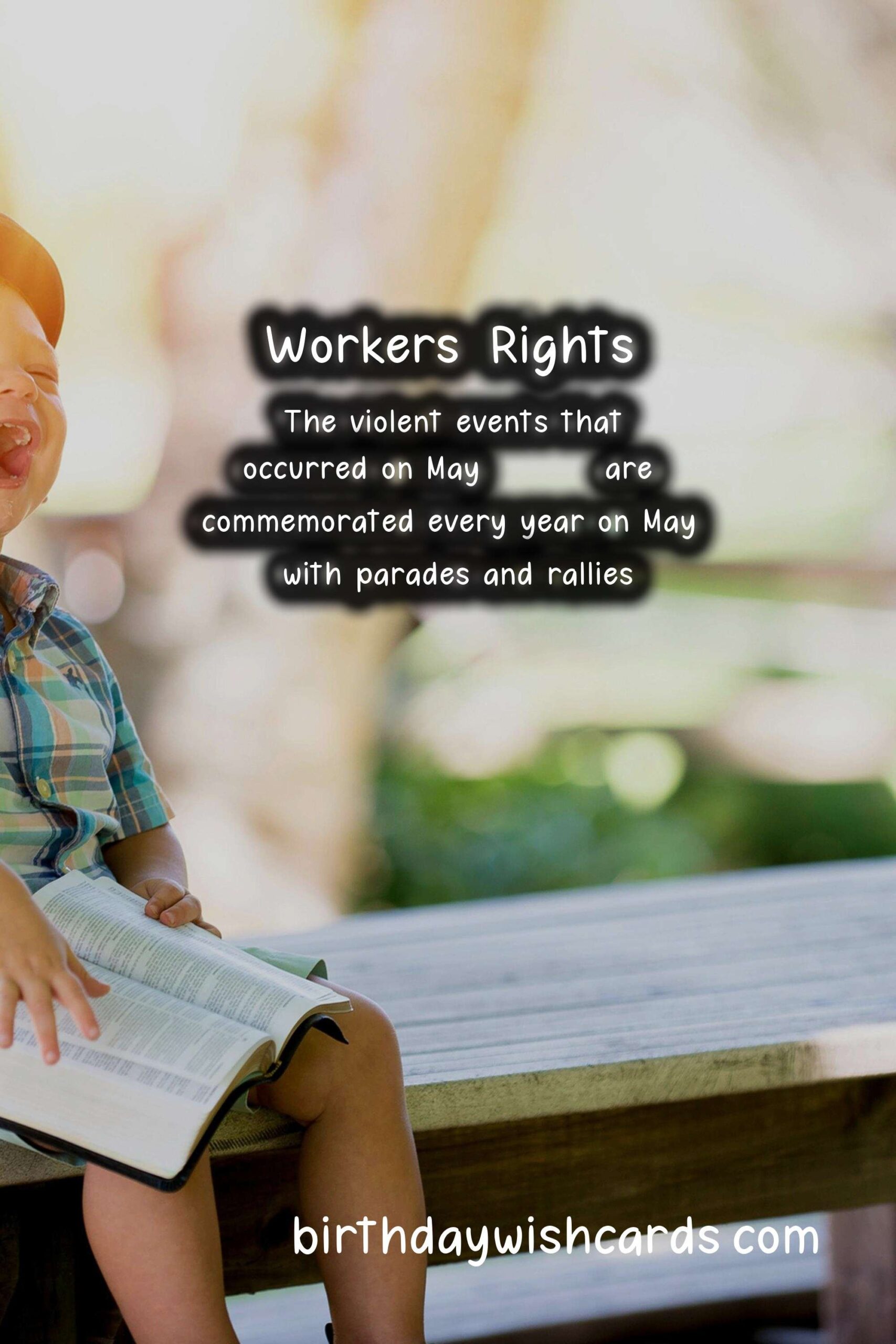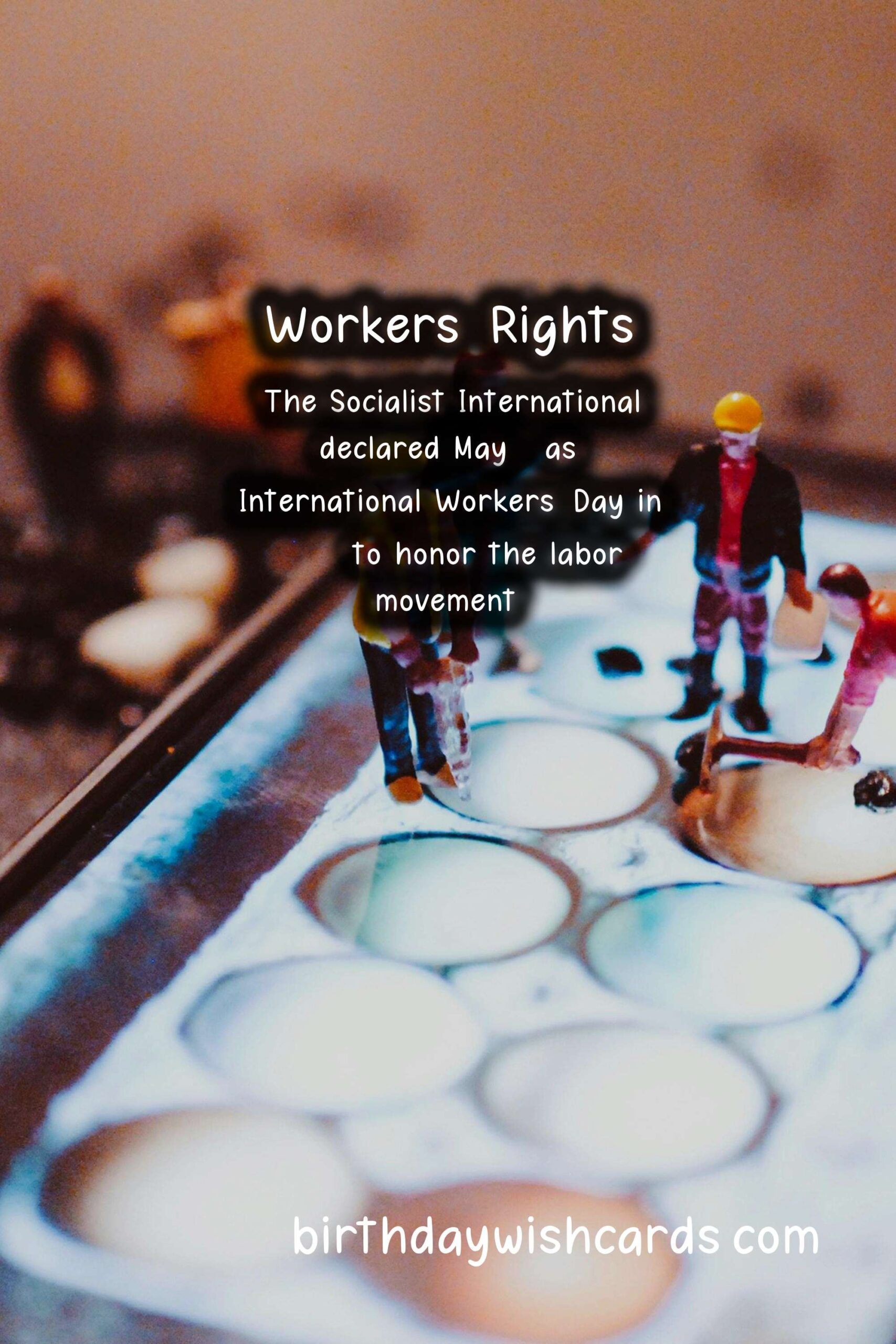
Labour Day, also known as International Workers’ Day, is a day to honor workers and their contributions to society. Every year on May 1, people around the world come together to commemorate this holiday and celebrate the achievements of the labor movement.
The origins of Labour Day can be traced back to the late 19th century, when labor unions and socialist political parties began organizing demonstrations and marches in support of workers’ rights and better working conditions. In 1886, a group of labor activists in Chicago organized a strike demanding an eight-hour workday. This strike soon turned into a mass protest, with over 300,000 workers from different industries joining in solidarity.
Unfortunately, the peaceful protest turned violent on May 4, when a bomb was thrown at police officers during a rally in Haymarket Square. The incident resulted in the death of both police officers and protestors, sparking outrage and leading to the imprisonment and execution of several labor leaders.
In 1889, the Socialist International, a global organization of socialist and labor parties, declared May 1 as International Workers’ Day to honor the labor movement and remember the events that occurred in Chicago three years earlier. Today, this day is observed in many countries, with parades, rallies, and other festive activities highlighting the importance of workers’ rights and social justice.
Labour Day is an important holiday that celebrates the contributions of workers to our society. The holiday originated in the late 19th century, with labor unions and socialist political parties organizing demonstrations and marches for better working conditions. The violent events that occurred on May 4, 1886 are commemorated every year on May 1 with parades and rallies. The Socialist International declared May 1 as International Workers’ Day in 1889 to honor the labor movement. Today, many countries around the world celebrate Labour Day with festivities and activities that promote workers’ rights and social justice. 

